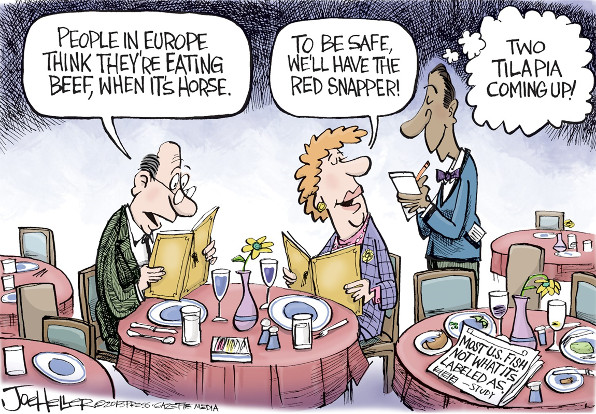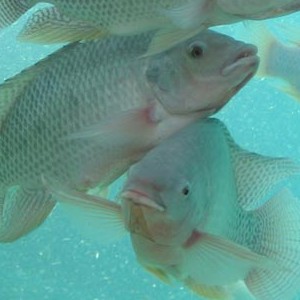Oceana Canada, a national not-for-profit organization that tracks Fish and Seafood labelling fraud – has released its latest survey of retail and restaurant fish seafo0od samples. DNA testing reveals that the situation hasn’t changed that much since the last survey about a year ago…
 Not so funny anymore… In Montreal, Oceana found that 10 out of 10 samples of
Not so funny anymore… In Montreal, Oceana found that 10 out of 10 samples of
Snapper they tested were actually another, cheaper species.
Oceana says, in a news release this week, that 61 percent of Fish and Seafood samples sourced in Montreal were mislabelled, making the famed world-class dining city one of the worst in the country for fish fraud. Almost two thirds of the samples gathered at random ‘were either a substituted species or didn’t meet the labelling requirements set out by the Canadian Food Inspection Agency (CFIA).’
Just the latest bad news…
The Montreal survey was the latest in a series of such blitzes carried out in major Canadian Cities starting back in 2017:
[The program] has shown that almost half of 472 samples – 47 per cent – collected in six Canadian cities from 2017-2019 were mislabelled. In addition to Montreal, this includes testing in Victoria (67% mislabelled), Toronto (59% mislabelled), Ottawa (46% mislabelled), Halifax (38% mislabelled) and Vancouver (26% mislabelled).
“The good news is that there is a solution: implementing boat-to-plate traceability and comprehensive labelling in Canadian seafood supply chains. This means requiring key information to be paired with fish products from the point of harvest to the point of sale,” says Oceana Director Josh Laughren. “This will reduce instances of fraud and mislabelling, protect Canadian consumers, honest fishers and vulnerable fish populations, and help Canada’s seafood industry access global markets – many of which already demand stronger traceability.”
No small issue
Canada produces high-quality seafood, roughly 85 per cent of which is exported. It’s big business and a major contributor to the economy. Oceana has called for tighter Seafood tracking and identification from boat to table similar to the system in place across the European Union. As a result, fraud rates there dropped from 23 per cent in 2011 down to seven per cent in 2014.
“Canadian industries that sell their products in the EU are already in compliance with these requirements, yet fishers from other countries who sell their products in Canada are not obliged to provide the same level of information to Canadian consumers,” the Oceana release laments.
Meanwhile…
The Oceana survey results make the cartoon above seem a little less funny…
~ Maggie J.

